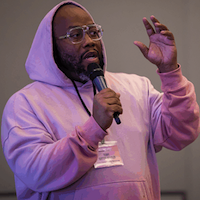Several recent Florida decisions interpreting the Florida game promotion statute could prove useful in planning future promotions. The statute (Section 849.094) defines a game promotion as a “contest, game of chance, or gift enterprise. . . in connection with the sale of consumer product or service, in which the elements of chance and prize are present.” No entry fee, payment, or proof of purchase can be required as a condition for entering the game.
The Florida game promotion statute does not apply to bingo games conducted pursuant to Section 849.093. In order to conduct a promotion game in Florida with prizes over $5,000, it is necessary to register the promotion, file rules, and file appropriate bond or trust account equal to the value of the prizes at least seven days before the commencement of any game. The game promotion statute also does not apply to activities of “any other organization engaged in any enterprise other than the sale of consumer products or services.”
The statute was recently interpreted in Beasley Broadcasting, Inc. v. Dept. of State, Div. Of Licensing. Beasley, the owner of two radio stations in Florida, ran cash games to increase the size of its audience during Arbitron ratings. The promos were run by the radio stations, not advertisers, and they did not file the games rules or establish trust accounts as required by law. Two administrative complaints filed by the Florida Division of Licensing were decided against Beasley for failure to comply. Beasley maintained the games were not “game promotions” since games were conducted by the radio station itself. The radio station did not sell consumer products or services, but rather advertising to businesses. Beasley argued that its radio station promotions were not “in connection with the sale of consumer products and services.”
The court defined consumer products and services as things normally used for personal, family, or household purposes. Since the radio stations were in the business of selling advertisements to businesses, and not consumer products or services directly, the division’s argument that the games were being operated to indirectly promote the sale of consumer products and services was held by the court to be outside the scope of the statute.
Bingo! Beasley was followed by the Brandenton Group, Inc. v. The Department of Legal Affairs, State of Florida. This case was a Racketeer Influenced and Corrupt Organization Act action against defendants who operated for-profit corporations that owned and operated a number of properties in which bingo was conducted on behalf of charitable organizations. The issue was whether the defendants’ failure to comply with the bingo statutes constituted predicate acts for racketeering under RICO. The Florida bingo statute exempts certain charitable organizations to conduct such games, provided the entire proceeds, less business expenses, are donated to charitable endeavors. Furthermore, they must follow detailed procedural rules concerning how the bingo games are conducted.
Florida maintained that an organization that violated any provision of the bingo statute automatically violated the Florida lottery statute and therefore was guilty of criminal predicate acts necessary for a RICO action. If an organization does not meet the charitable criteria for eligibility to conduct a bingo game, it would be evaluated not under the bingo statute, but the applicable Florida gambling law.
Under the Brandenton discussion, the Florida bingo statute is not a means for punishing non-qualified bingo operators whose activities have to be evaluated under the Florida lottery laws. Bingo games could therefore be conducted by non-qualified organizations provided such games did not violate Florida gambling statutes.
Finally, in the case of State of Florida v. 3B TV, Inc. d/b/a Basil Bassett Bingo, the state challenged a promotional game called Basil Bassett Bingo broadcast by 3B TV to Florida satellite subscribers. Viewers play the game with bingo cards available by purchase and non-purchase methods. The Florida Circuit Court for the Second Judicial Circuit, Leon County, held that the Florida bingo statute did not prohibit bingo if it was not run by a charitable organization. Instead, such activities had to be evaluated under Florida’s lottery statute, for which trial was at that time still pending. Since 3B TV was not an entity authorized under the Florida Bingo Statute to conduct bingo games, it could not fall under the purview of the Florida bingo statute and its activities had to be evaluated under the general Florida lottery laws.
Under these decisions, Florida appears to subject promotions to its game promotion registration requirements only if they are conducted in connection with the sale of consumer products or services. Bingo-type games can be conducted if they comply with the state lottery statutes. However, other states have adopted a more restrictive position on bingo and the language of other state lottery laws vary greatly in their requirements and application. In matters of this nature, careful legal consultation is strongly advised.



